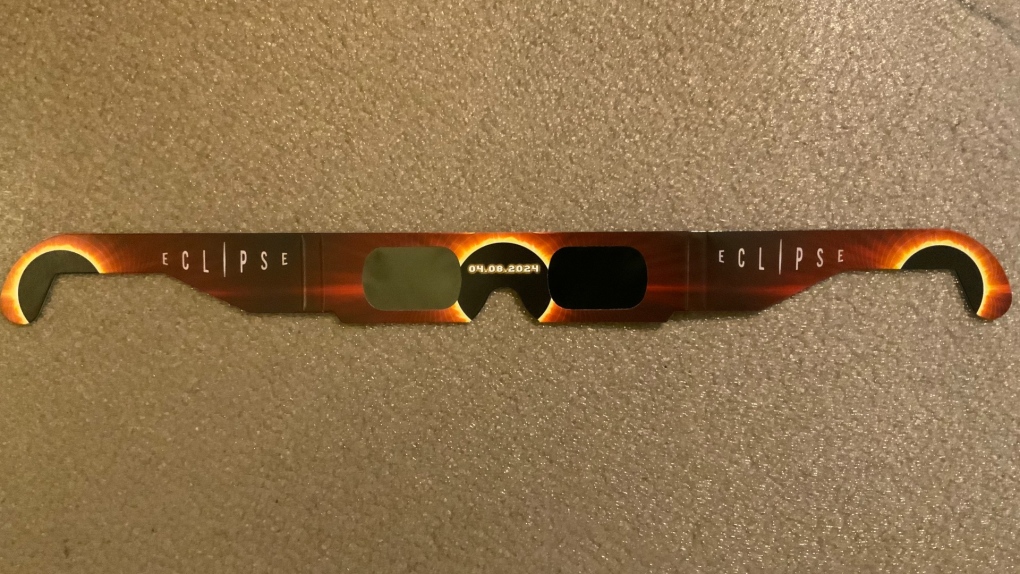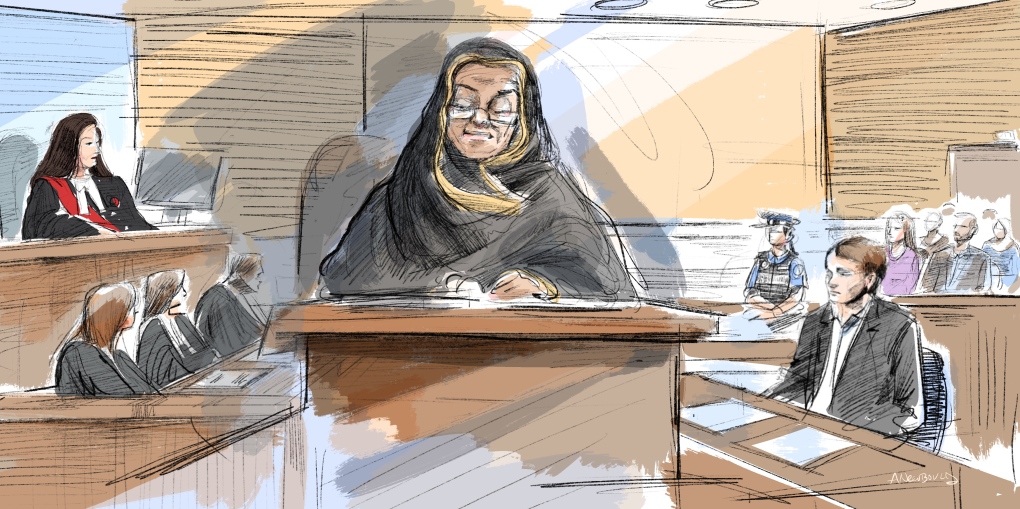Many of us are eagerly anticipating the solar eclipse on April 8 — a once in a lifetime event, with southern Ontario one of the hot spots for viewing.
But one of Canada’s leading ophthalmologists is warning that our eyesight could be at risk if we don’t take necessary precautions.
“It really isn’t dangerous during that very brief period when the whole sun is covered,” explained Dr. Phil Hooper of the Ivey Eye Institute at St. Joseph’s Health Care in London, Ont.
“In London it’s going to be less than a minute,” he continued. “And the remaining time the sun gets around the edge of the moon, and that’s the damage point.”
Hooper said even a quick unprotected look at the eclipse can burn a hole in the eye’s macular tissue. That’s why special purpose solar eclipse glasses are a must.
“When you’re looking at the sun the light is too much for the eyes to bear, and these cells are actually cooked, if you will, by the sun, and it doesn’t take very long for that to happen. It’s a permanent change, and it’s right in the centre of your vision. So, tremendous devastation if that happens,” he explained.
Legitimate solar eclipse glasses should be marked with ISO certification. (Bryan Bicknell/CTV News London) Hooper is offering the following advice for viewing the solar eclipse:
- Protect your eyes at all times using safe solar-viewing glasses or a safe, handheld solar viewer that complies with the ISO 12312-2 international standard
- Make sure the glasses are not torn, scratched or otherwise damaged before use.
- Do not look at the sun through a camera lens, telescope, binoculars or any other optical device while wearing eclipse glasses or using a handheld solar viewer, as the concentrated solar rays will burn through the filter and can cause serious eye injury
- Always supervise children using solar viewers
One of the best areas in southern Ontario to view the solar eclipse will be Elgin County. A partial eclipse begins at approximately 2 p.m. Viewed from Port Stanley, the full eclipse begins at 3:16 p.m. and lasts for approximately two minutes. The partial eclipse ends at approximately 4:30 p.m.
With an influx of visitors expected, Elgin County CAO Blaine Parkin said emergency services are gearing up, much like they would for any long weekend in the summer.
 Solar eclipse glasses are being distributed by Elgin County ahead of the April 8, 2024 total solar eclipse. Elgin County lies within the path of totality. (Bryan Bicknell/CTV News London) “We’ve been planning over the past number of months with not only our tourism people, but our provincial police and our fire and emergency services just to be on the safe side and to make sure that everyone is enjoying the day but doing it responsibly,” he said.
Solar eclipse glasses are being distributed by Elgin County ahead of the April 8, 2024 total solar eclipse. Elgin County lies within the path of totality. (Bryan Bicknell/CTV News London) “We’ve been planning over the past number of months with not only our tourism people, but our provincial police and our fire and emergency services just to be on the safe side and to make sure that everyone is enjoying the day but doing it responsibly,” he said.
Part of the preparation also includes distributing special-purpose solar eclipse glasses, according to Elgin County Warden Ed Ketchabaw.
“They’re available right now in the administrative offices at the Heritage Centre. They will be available at local library branches across the county, and our local municipal partners will have a supply,” he said.
However you acquire your classes, Hooper stressed to make sure they are ISO certified, and that they have a wide side panel for optimum protection.
https://london.ctvnews.ca/don-t-burn-your-eyes-special-glasses-needed-for-solar-eclipse-1.6823369




